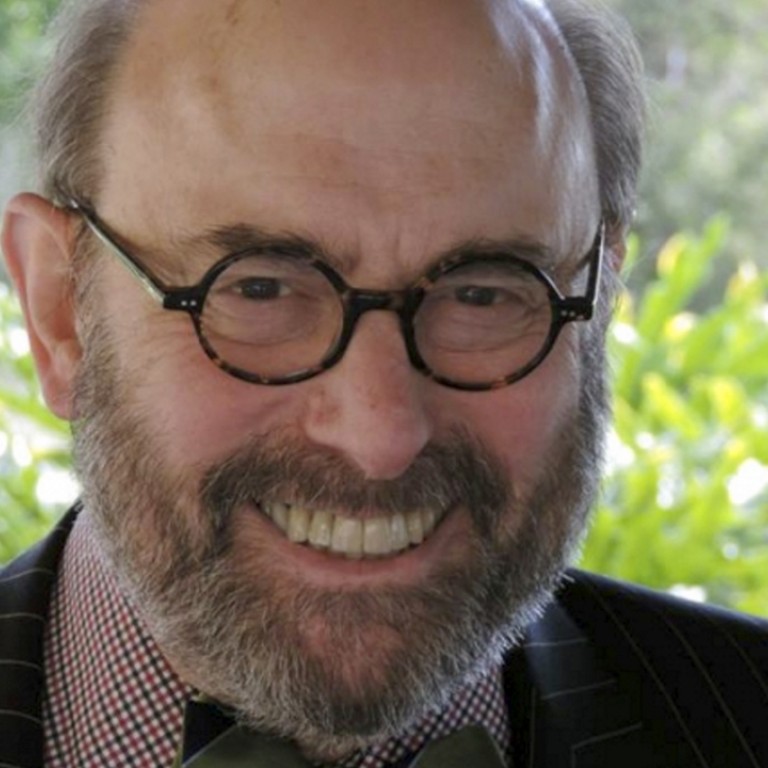
Horror maestro Peter Straub on the changing face of publishing
Straub’s short story collection Interior Darkness takes an unflinching look at the bad things people are prepared to do to each other and the justifications they are happy to make

SEE ALSO: Dean Koontz shows he is still the king of suspense
How did you go about choosing works for this anthology?
I had wanted ideally to do a book of collected stories. I knew it might be a pretty fat book. Then my agent informed me it would be two volumes, and there wasn’t a chance in hell I could get that published. So then I was obliged to consider “selected” stories, and that meant I did have to leave out any number of stories that I like a lot. It took a long time. I made many lists. Each list was the final one until I thought about it again. Part of the problem is that half of the shorter fiction I’ve written isn’t at all short.

Occasionally stories were a little frivolous, and I didn’t choose those; I wanted a kind of balance. Really one of the best things I’ve ever done is a story called “Bunny Is Good Bread” – which has some very graphic abuse of a small boy. When I used to read it in public my daughter would make this little “Oh no, he’s reading that again!” face. It’s not gratuitously nasty, but it is deeply nasty. I did have one story about child abuse I was eager to place in the book [“The Juniper Tree”], and I thought probably one of those was enough for a single volume of stories. There are two stories about torture, though.
You’ve seen the publishing industry change dramatically over the years. How do these changes affect you?
I’m in my early 70s – I do pretty much what I want to do. I have a comfortable life. What I do now daily at my desk is not going to pay for the tuition of my children in private school – they’re adults, they’re out on their own. I’m pretty sure I’m not going to be homeless – though the second I say that, I start to wonder. But there’s a worry level I’ve graduated from. I’m very fortunate … If I were younger I’d have to deal with the one dreadful fact that has taken place in American publishing, which is that advances have gone way down … Many a writer’s income just vanished. It’s harder to make a living. People could support themselves by writing a book a year, which is not easy – it’s hard work to write a book a year. I have a good friend in northern California, my age, who just discovered she has to write four books a year to support herself, and she was not living like a princess. It’s got stonier and colder and harder.

Emma is a very remarkable human being. It’s a terrible cliché, but she does have her head screwed on right. She’s absolutely determined in her core to do her job as well as she can do it. Making up a kind of life that seems as real as the one you actually have, that’s an odd activity, but Emma, it turns out, is good at it … When she was right out of college she wrote a long Wuthering Heights-type novel set in high school. She gave me this manuscript about 800 pages long, and I took it with some trepidation. As soon as I started to read it, though, I could relax, because though it might have been kind of a mess, Emma could really write. She had this built-in ability to write very agreeable, well-balanced, thoughtful, funny sentences. When you read her prose, you trusted her. This is a real gift.
Is there any truth to the rumours that a third Talisman book is forthcoming?
I certainly hope so. It’s totally dependent on the patience of my saintly collaborator, Steve King. We were supposed to start it three or four years ago, but I had medical problems that stopped me in my tracks. Then I had problems with a book I was doing … so we’re no closer to being able to start it. But part of the reason he’s so patient is we have a great idea for the book. I won’t tell you what it is, but there was a famous story that happened in the world when we were young. He kept a scrapbook about it and so did I, him in Maine and me in Milwaukee. It has a lot of juice in it, and he and I both feel that way about it, so we are eager to do this book. I think he’ll cut me a break and let me go a year or two and then we’ll start working on it.
Tribune News Service
